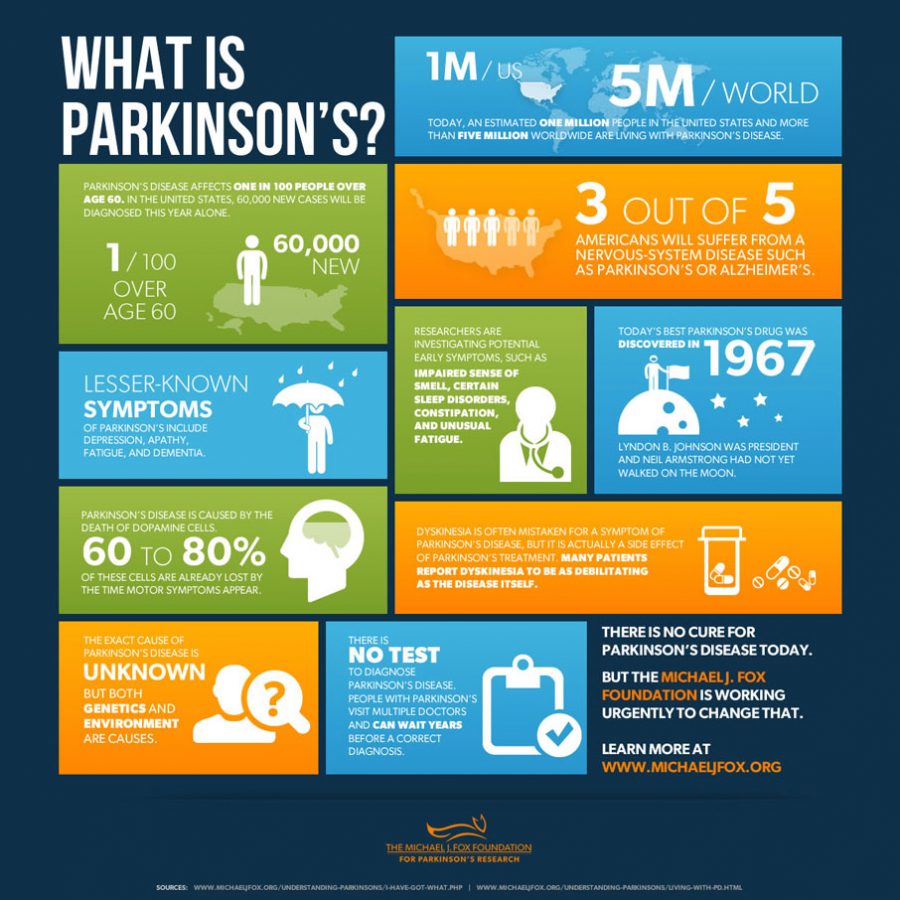A New Treatment for Parkinson’s Disease
According to The Parkinson’s Foundation, Parkinson’s disease is a neurodegenerative (deterioration of the nervous system) disorder that affects dopamine-producing neurons in the brain. Symptoms gradually develop over time, and although they vary by person, typical symptoms are tremors, stiffness, and balance problems. Over one million people in the United States and ten million worldwide are affected. Therapy for this disease can help alleviate symptoms, but it’s not a cure. Recently, the U.S. Food and Drug Administration has allowed researchers from the Memorial Sloan Kettering Cancer Center to try to test a new type of cell therapy for Parkinson’s disease.
MSK researchers and their collaborators intend to use the first clinical trial testing an investigational stem cell therapy that will try to restore the neurons in people with extreme cases of Parkinson’s disease. For the past 50 years, the treatment used was a drug known as L-DOPA. This drug ended up not being effective and long-term use led to LIDs. (Levodopa-Induced Dyskinesia) Dyskinesia is when a person has uncontrollable and involuntary movement.
Phase 1 of the trial will be tested on ten patients. The goal of the Phase 1 trial is to look at the safety of the treatment, how much the treatment can be tolerated, and how effective it is. Due to new technological advancements, there is hope for a cure for Parkinson’s disease.
Your donation will support the student journalists of Parkland High School. Your contribution will allow us to purchase equipment and cover our annual website hosting and printing costs.

Shaiyan is a senior, and this is her second year in the Trumpet. She enjoys writing news, opinion, and health articles. She's in Girl Scouts and various...







